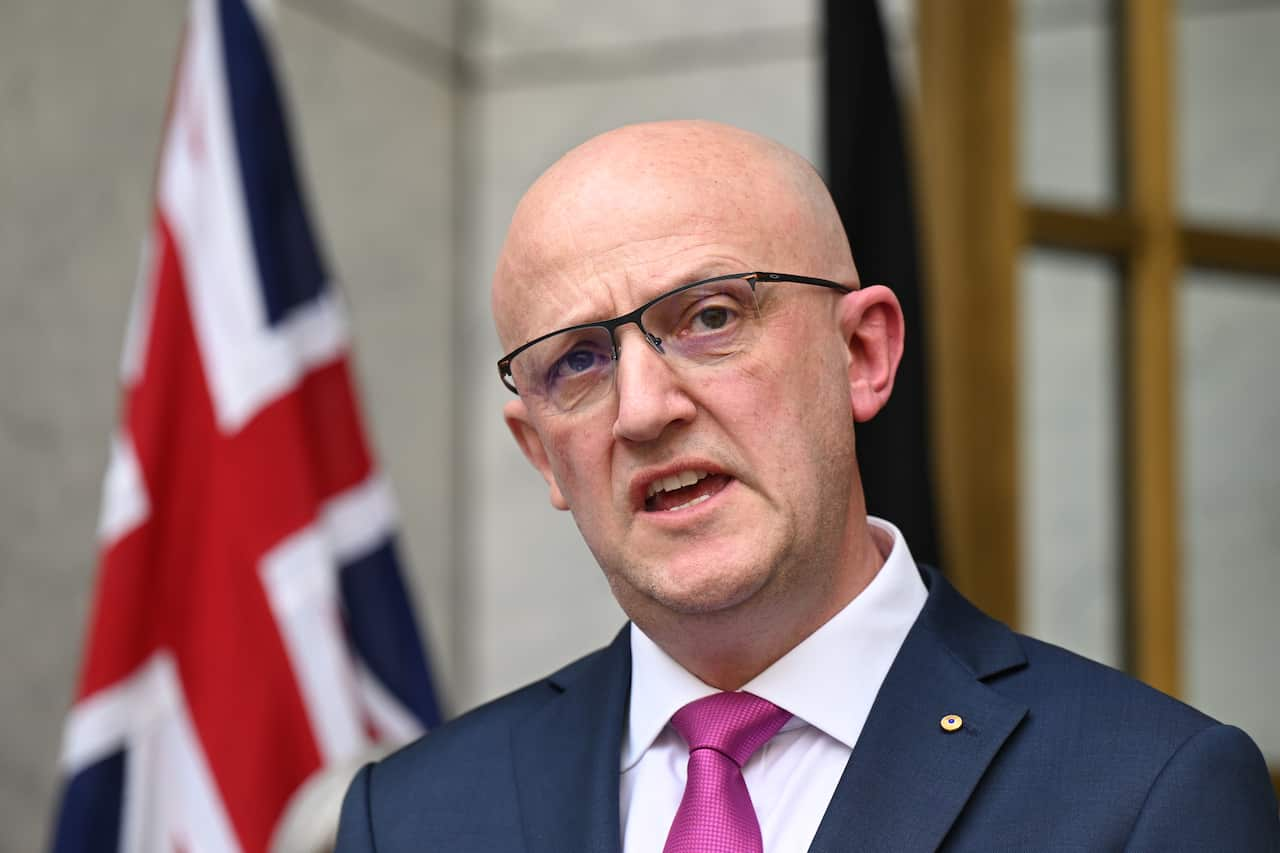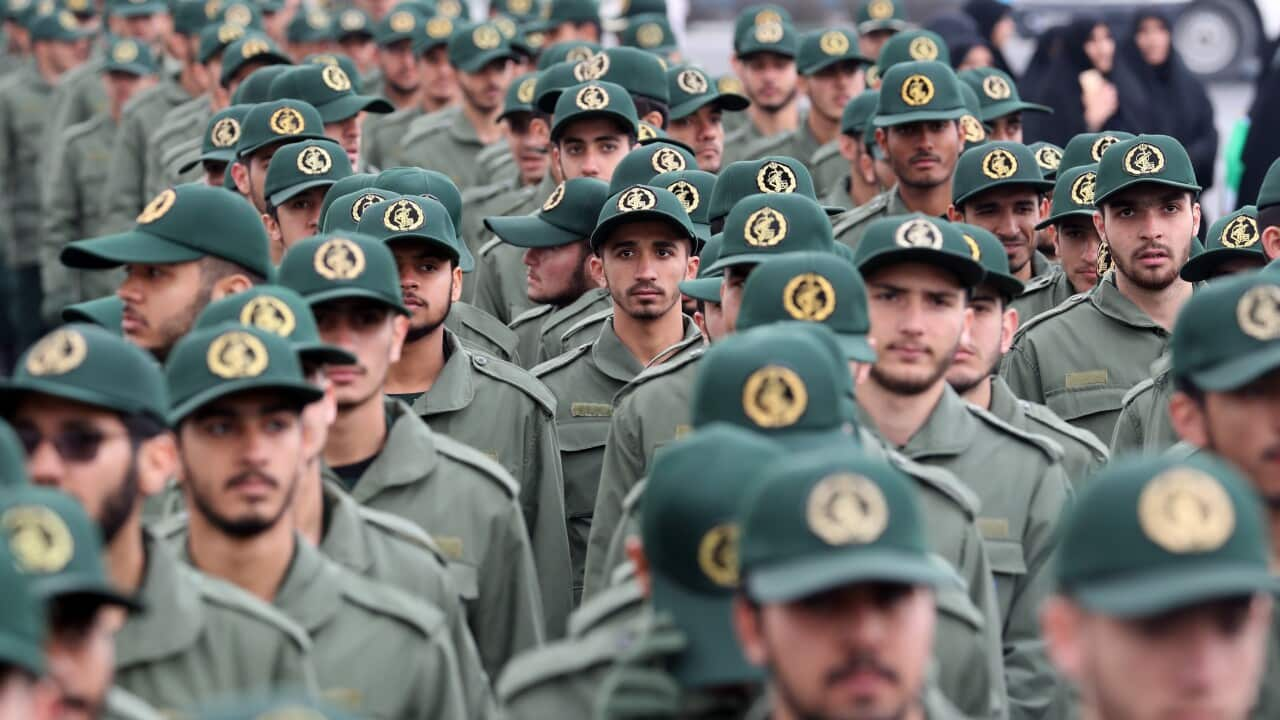Iran's ambassador to Australia has been expelled, and Australia's embassy in Tehran shut down after the Australian Security Intelligence Organisation (ASIO) provided "credible intelligence" that Iran was behind two recent antisemitic attacks in Australia.
The Islamic Revolutionary Guard Corps (IRGC) directed attacks against Melbourne's Adass Israel Synagogue and Sydney's Lewis' Continental Kitchen, according to ASIO intelligence.
Prime Minister Anthony Albanese on Tuesday labelled the finding as "extraordinary and dangerous acts of aggression orchestrated by a foreign nation on Australian soil" and said: "an attack on our social cohesion is an attack on Australia".
In response, the federal government has announced the IRGC will be listed as a terrorist organisation — a move many critics of the Iranian regime have been calling for, for years.
Dr Jessica Genauer, senior lecturer in International Relations at Flinders University, said she was "surprised" at the swift action from the Australian government.
"I'm not surprised that the Iranian ambassador has been asked to leave because it was a very serious finding that the IRGC might be behind these terror attacks," Genauer told SBS News.
"But I am surprised that they have moved so quickly to [announce they will] designate them as a terrorist organisation."
What is the IRGC?
The Islamic Revolutionary Guard Corps (IRGC) was set up shortly after the 1979 Islamic Revolution to protect the newly established Shi’ite Muslim clerical ruling system and protect the country from internal and external threats.
It's separate from Iran's regular armed forces, but is still embedded within the Iranian government.
"The Islamic Revolutionary Guard Corps are a really interesting part of the Iranian security landscape," Genauer told SBS News. "They really protect and guard the Iranian regime."
It answers to Supreme Leader Ayatollah Ali Khamenei and has an estimated 125,000 to 135,000 strong military, including army, navy and air units.
It also commands the Basij religious militia, a volunteer paramilitary force used to crack down on anti-government protests, and has an overseas arm called the Quds Force.
The Quds Force's top commander, Major-General Qassem Soleimani, was killed by the US in a drone attack in Iraq in 2020, sparking concerns over a major conflict at the time.
"They are partly involved in foreign policy endeavours like trying to further Iranian interests in the region … but they also have an interesting domestic role where they actually have a wing that is like a domestic security force and also internally polices the Iranian population for the regime," Genauer said.
"So they are quite critical to propping up and backing the regime from a security perspective in a way that your regular military would not fulfil that same function."
Greg Barton, professor of Global Islamic Politics at Deakin University, said the IRGC now dominates "every tier of leadership in Iran".
"On the face of it, it presents itself as being sort of guardians of religious purity, but actually their main focus is on safeguarding their business interests and their control of the Iranian state and economy," he told SBS News.
"They really control the state. So there are still separate sections of the military, but everything else in Iran is subservient to them."
'It's never happened in the past'
Australia will join other countries including the US, Sweden, Bahrain and Saudi Arabia, that have listed the IRGC as a terrorist organisation.
Genauer says the decision to list the IRGC is "complex and significant" and one that hasn't been done before.
"It's never happened in the past that we've designated a terrorist organisation who are associated with a state," she said. "It's much more complicated when you want to designate an organisation as a terrorist party and they're actually interconnected with a state apparatus, which is the case for the IRGC."
Labelling the entirety of the IRGC as a terrorist organisation has implications for the government's ability to deal with that group. But because the IRGC is so embedded in the Iranian political and military landscape, it could mean that anyone who has served as part of the IRGC or is associated with them would be banned from entering Australia.
It will also have broader impacts on how Australia deals with Iran as a nation.
"It will create a lot of friction and tension in the relationship between Australia and Iran because the Iranian regime considers the IRGC as absolutely embedded within the core operations and objectives of the regime. They're embedded within all of their foreign policy endeavours regionally, but then also the way that they would operate internationally," Genauer said.
"I think Australia has decided that keeping our citizens safe and ensuring that domestically we are not putting our citizens at risk of terror attack or organised terror activities is more important to them at the moment than maintaining good, warm, close relations with the Iranian regime."
ASIO director-general Mike Burgess said on Tuesday the organisation investigated dozens of incidents and determined there were links between the alleged crimes and commanders in the guard corps.
"The IRGC used a complex web of proxies to hide its involvement," he said.
"ASIO is still investigating possible Iranian involvement in a number of other attacks, but I want to stress we do not believe the regime is responsible for every act of antisemitism in Australia."
The IRGC will be listed as a terrorist organisation once urgent legislation passes parliament.
Australia's criminal code makes it an offence to provide support to a listed terrorist organisation.

What will be the flow-on effects of this decision?
Genauer says the move will create "a lot of tension" between Australia and Iran and will have flow-on effects for diplomacy, economics and trade.
"In terms of diplomacy, it's going to mean a break in diplomatic ties, which we've already seen taking place," she said.
The Iranian ambassador to Australia, Ahmad Sadeghi, has been expelled and Australia's mission in Tehran closed, with diplomats moved to a third country and operations suspended.
It's the first time Australia has expelled an ambassador since World War Two.
Genauer says that while it remains to be seen what further actions the government will take, designating an organisation as a terrorist entity typically would also mean sanctions.
"There's already a whole regime of sanctions that are in effect on the Iranian regime, but it could mean additional sanctions being brought into force by the Australian government onto Iran."
How significant is this move for Australia?
Genauer says the move is "very significant in the trajectory of Australia".
"It will be an incident that is recorded as a marker or turning point in that relationship," she said. "It will be hard to come back from."
"It's not that we can't come back from that, but it's something that is probably going to take a number of years to thaw, or if that designation is ever lifted, is probably not something that's going to happen in the short to medium term."
She added that the decision will also mean tensions will likely build further between Australia's allies and other Western countries, and Iran.
Broadly, the move was welcomed by both Jewish and Iranian advocacy groups.
Israel's embassy in Australia "welcomed" Australia's decision and called it a "strong and important move".
"This is a step we have long advocated for," the statement read. "Iran's regime is not only a threat to Jews or Israel, it endangers the entire free world, including Australia."
Executive Council of Australian Jewry president Daniel Aghion KC said: "These attacks instigated by the Iranian regime are an attack on our nation and our sovereignty. As Australians, we are outraged that a foreign actor perpetrated acts of terror on our soil."
"It is entirely appropriate for it to now be proscribed as a terrorist organisation."
Dr Kylie Moore-Gilbert, an academic who was falsely charged with espionage and imprisoned in Iran for over two years, welcomed the "decisive action" but said it had taken too long.
"I applaud Albanese and Wong for stepping up and taking decisive action against a brutal regime which has long shown itself to be an enemy of the Australian people," she wrote in a statement on X. "It's such a shame that it's taken them so long."
Coalition leader Sussan Ley said it had been "urging the government to list the Islamic Revolutionary Guard Corps as a terrorist organisation for more than two years — and we will back any legislative changes needed to get it done".
"Our Jewish community deserves safety, not excuses; this must be the start of a broader crackdown on Iranian regime proxies, foreign interference and intimidation in Australia," Ley said.
AUSIRAN, an Australian non-profit organisation dedicated to the support of the 'Women, Life, Freedom' revolution, said the expulsion of the Iranian ambassador was a "necessary step for our safety and dignity".
It also called on the government to "act without delay" in designating the IRGC as a terrorist group under Australian law.
— With additional reporting by Australian Associated Press.
For the latest from SBS News, download our app and subscribe to our newsletter.

